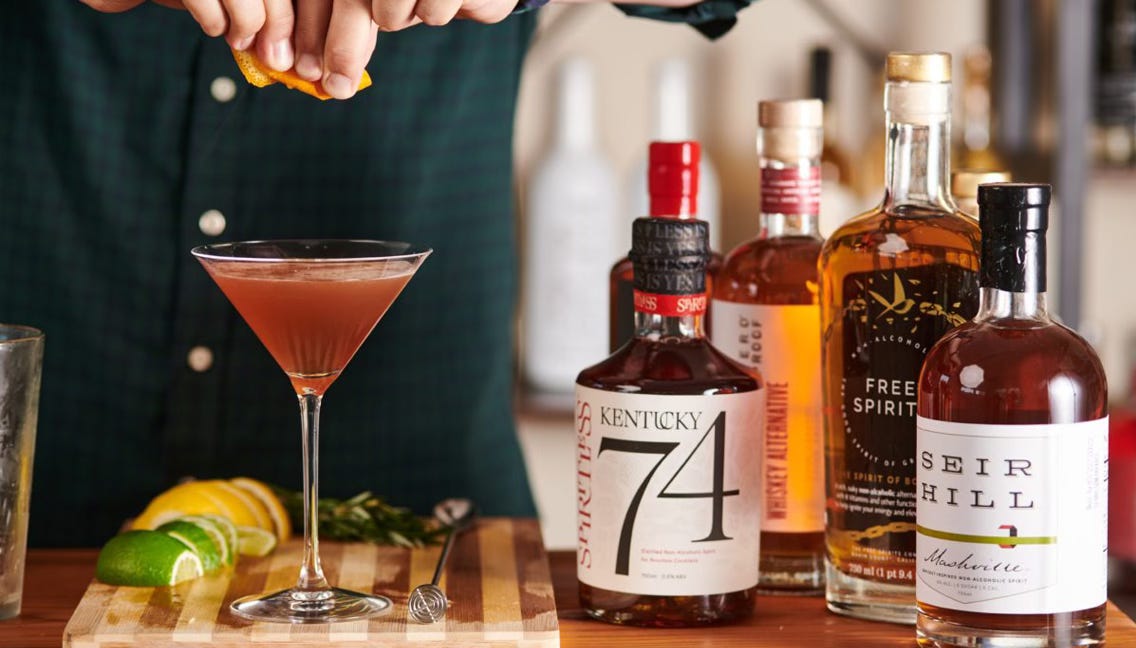Storytelling is the cornerstone of any great brand. It’s how we connect with people, build trust, and create something that feels bigger than a product. Without a story, even the most innovative ideas can fall flat. I’ve always believed that an authentic story is the best way to build a brand—and I’ve lived that belief through Seir Hill.
Without a story, even the most innovative ideas can fall flat.
When I founded Seir Hill, I wanted it to stand for something real. Not just another trendy non-alcoholic beverage brand, but one that had roots. For me, that authenticity came from two deeply personal pillars: farming and sobriety.
The First Pillar: Farming and Legacy
The first pillar of Seir Hill’s story is deeply tied to my father. He grew up working on farms across Connecticut, moving from place to place and trading labor for room and board. Though he didn’t pursue farming as an adult, those formative years left a lasting impression on him—and, by extension, on me.
I live in a converted barn on Seir Hill, surrounded by the history and culture of farming in New England. Naming my brand after this place wasn’t just a creative decision; it was a way to honor my father’s story and root the brand in something meaningful.
This connection to farming is woven into every aspect of Seir Hill. From the flavors we craft to the causes we support, like donating to the American Farmland Trust, farming isn’t just part of the brand—it’s part of its soul. It’s about more than selling beverages; it’s about preserving a way of life that has shaped generations.
The Second Pillar: Sobriety and Authenticity
The second pillar is my own journey to sobriety. When I decided to quit drinking, I found myself searching for alternatives that didn’t feel like a compromise. Too many options on the market were overly sweet, artificial, or simply uninspired.
That’s when I decided to create something better. Seir Hill was born out of my desire for high-quality, crafted alternatives to alcohol—options that could stand on their own without feeling like an afterthought. My sobriety isn’t just part of my story; it’s the reason Seir Hill exists.
My sobriety isn’t just part of my story; it’s the reason Seir Hill exists.
This pillar is deeply personal and undeniably authentic. But it’s also the one I’ve started to question.
The Challenge: Moderation vs. Sobriety
The non-alcoholic beverage industry is booming, but the dominant narrative is about moderation, not sobriety. It’s about “cutting back” rather than giving up alcohol entirely. This approach resonates with a broader audience because it feels more approachable and less permanent.
Alcohol is deeply ingrained in our culture. Many people enjoy it and don’t want to confront the potential health risks or social consequences of drinking. It’s not necessarily about having a “problem”; it’s about not wanting to give up something they see as part of their lifestyle.
This has made me wonder: Is my story of sobriety too niche? Does it make Seir Hill less approachable for people who are just looking for an occasional alternative, without committing to a larger lifestyle change?
The Power—and Risk—of Authenticity
This is the paradox of storytelling in business. A great story can connect deeply with your audience, but it also requires vulnerability. It asks you to put yourself out there, knowing that not everyone will relate or respond in the way you hope.
A great story can connect deeply with your audience, but it also requires vulnerability.
For Seir Hill, my story is both an asset and a risk. It’s what makes the brand real, but it might also narrow its appeal in a market where moderation feels like a safer message.
Even so, I believe in the power of authenticity. The right story isn’t the one that tries to please everyone—it’s the one that stays true to who you are. And for me, that means embracing both pillars of Seir Hill’s story: the legacy of farming and my journey to sobriety.
Finding the Balance
This doesn’t mean I have it all figured out. As the non-alcoholic industry evolves, I’ll need to keep asking hard questions about how to position Seir Hill in a way that feels inclusive without compromising its authenticity.
But one thing I know for sure: authenticity matters. It’s what makes a brand more than just a product. It’s what builds trust, loyalty, and emotional connection.
So, is my story helping or hurting my business? The answer might be both. But for the people it does resonate with, I believe it makes all the difference.
Your Turn: Sharing Your Story
If you’re building a brand, how do you decide which parts of your story to share? How do you balance authenticity with the need to connect with a wider audience? I’d love to hear your thoughts.
If Sober Founder resonates with you, hit the ♡ and subscribe—it helps others find this space and keeps the conversation going. Thank you!




